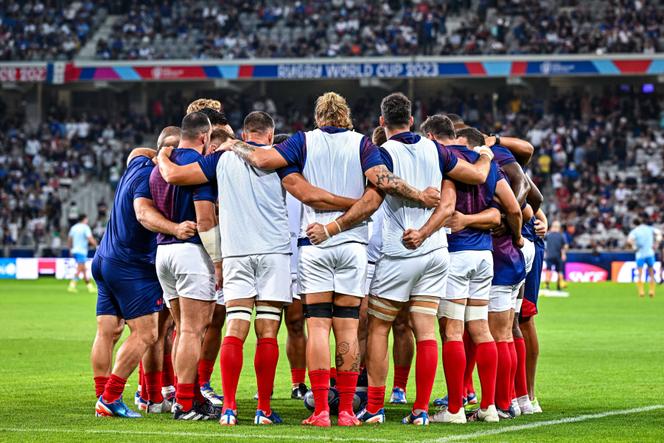


Tracing back the "arrow of time," an expression often used by coach Fabien Galthié, the French rugby team's mental preparation record has been spotty at best, including recently. "We have quite a few experienced players in this team, so I don't know if a psychological trainer would be the solution," said Jacques Brunel, Galthié's predecessor, the day after an umpteenth rout in February 2019. "It would be more appropriate for individual cases. For the collective, I don't think it's the solution," he continued.
Until the 2019 World Cup, France was the only major rugby nation without a mental preparation specialist dedicated to its team. Four years later, things have evolved dramatically and psychology has become one of the team's strengths as it prepares to take on world champions South Africa at the Stade de France on Sunday, October 15 (9 pm on the TF1 channel) with hopes to reach the semi-finals.
One man is behind this acculturation of the French team's players and coaching staff to sports psychology. Mickaël Campo, now head of mental preparation at the French Rugby Federation, is a former coach and mental trainer for Lyon Olympique Universitaire Rugby. Campo, who holds a doctorate in psychology, is far from a guru offering mystical remedies, in contrast to the clichés that persist even when mental trainers are duly trained. "We don't want a mentor or a guru," said Galthié when he took up his post at the end of 2019.
"What we bring is backed up by scientific knowledge," said Campo during an interview with Le Monde in which he challenged prejudice about a discipline that "suffers from ultracrepidarianism" – the art of talking about what one knows nothing about. A case in point is the reaction to those moments during matches, after tries scored or conceded, when television viewers see the French players gather in a small circle and breathe. "I've seen comments saying we were doing 'heart coherence.' Or that we were doing it to get to a 'special zone' or 'practicing magic.' Not the case at all," Campo said.
In reality, these are "bubbles of control, i.e. control of ourselves as well as of the message we can send to our opponent," explained the mental coach. Before the French, Australians and South Africans were already using these huddles. No "magic potion," as some called it, could explain why Les Bleus no longer crack under pressure – at least as seen so far in the World Cup. "Associating the 'bubbles' with results is a misunderstanding of what the mental dimension is, i.e. a continuous effort," added Campo, who is also president of the French Society of Sport Psychology and conducts research for the Faculty of Sports Science at the University of Burgundy.
You have 48.31% of this article left to read. The rest is for subscribers only.
